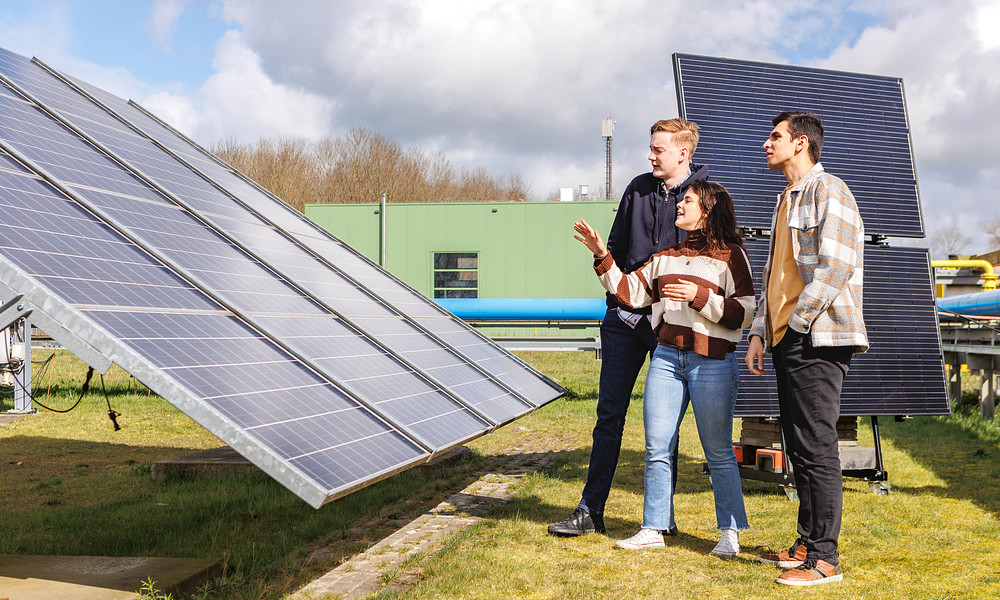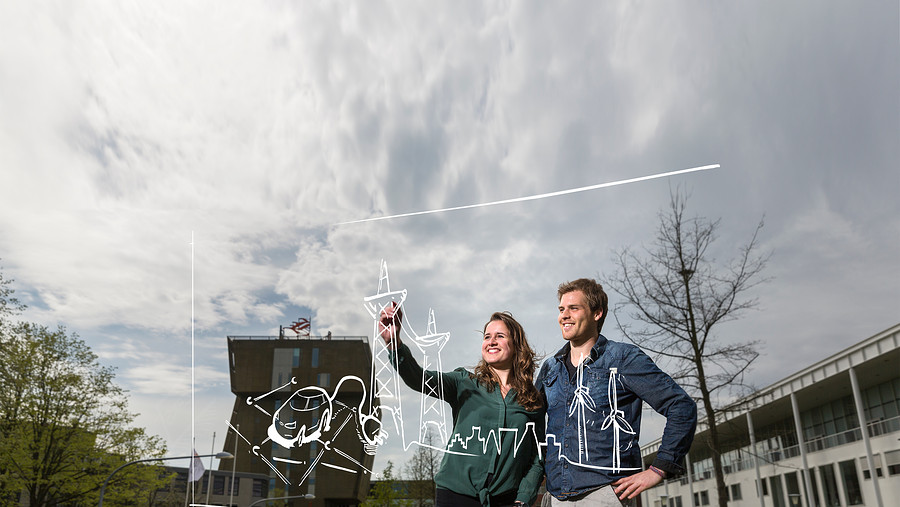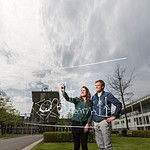Contribute to the energy transition by designing and implementing new technologies
- Master
- Full-time
- 3 semesters
Contribute to the energy transition by designing and implementing new technologies

Are you up to the task of designing a sustainable energy system based on renewable energy technologies? Are you the much needed highly skilled professional engineer? And do you want to learn how to work with fundamental interdisciplinary knowledge, skills and tools to tackle one of Europe’s biggest challenges; the transition towards sustainable energy systems? Then this is the master programme for you! What you’ll find;
✔ International learning community ✔ High-end facilities ✔ European network (EUREC) ✔ Real life clients and assignments
During your master’s, you will work on real-world projects that address societal and organisational challenges. Through hands-on research, you will create innovative solutions that make a difference. Curious what that looks like? Below are a few examples of our students' projects.
Energy scarcity and environmental problems are major challenges. The combination of technical, strategic, social and environmental issues encountered in the energy transition demands a significant multidisciplinary approach. It requires more senior technical professionals and highly educated engineers who can work with experts from other disciplines and carry out applied scientific research to come up with practical solutions. That’s what you’ll be learning! You will contribute to the energy transition by applied research, consultancy work or providing strategy and policy advice, all with the focus on sustainable energy technologies.
This programme offers you a great way to start or boost your career in the energy sector. You will become a renewable energy engineer with a fundamental understanding of the technologies and techniques in the energy sector.

During the core semester, you acquire a solid foundation in the technical and engineering aspects related to innovative energy system design and implementation and their various related interdisciplinary aspects. Theoretical courses which also examine the socioeconomic issues surrounding the deployment of these technologies are supported by laboratory workshops. The studies for the core can be done in French, English or Spanish.
For the core you can choose one of the following universities:
In the second semester you specialise in a chosen technology at a university. The specialisations are taught in English. For the specialisation you can choose one of the following universities:
The third and last semester you will apply your knowledge and skills in a research project at a company or a research centre. Based on this research you will write your thesis under the supervision of (a core professor), (a professor of the specialisation and) a professor from the project provider.
You have to spend either semester 2 or semester 3 in a different country than the country of your core University.
